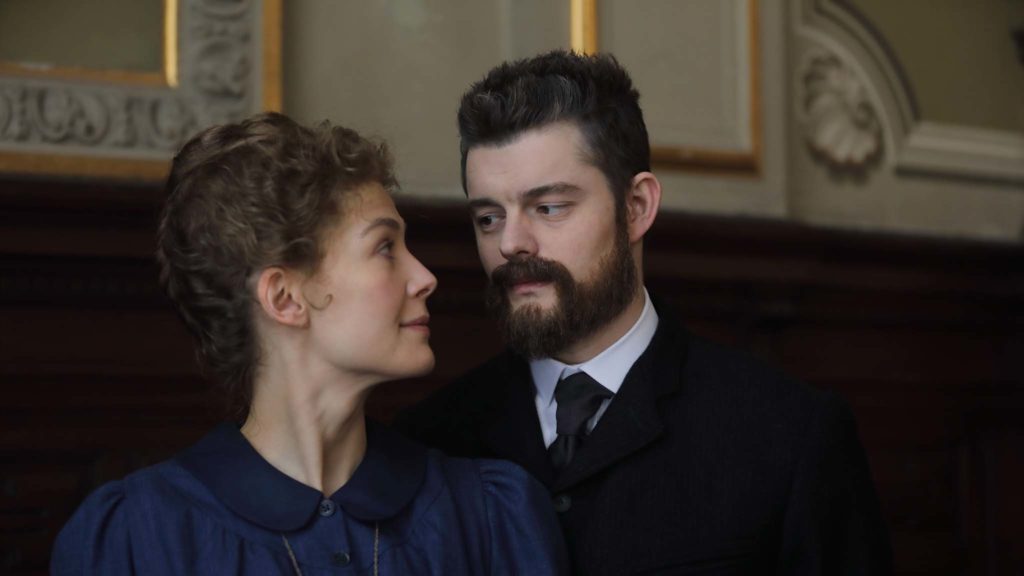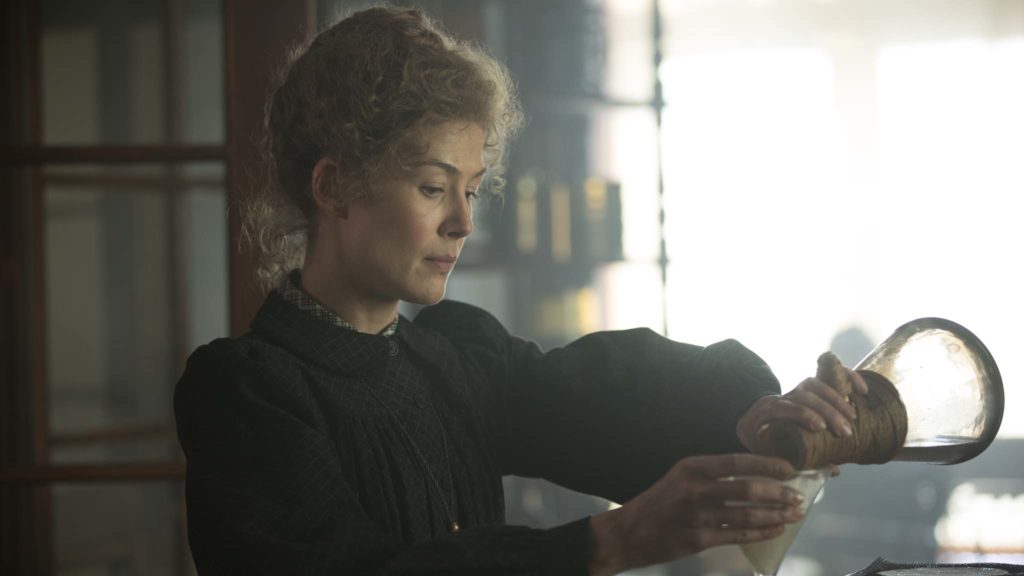Drama
Radioactive (12A)
Review: Rosamund Pike repeatedly sparks but never quite catches fire as a trailblazer who illuminated 20th-century science in Academy Award nominee Marjane Satrapi’s biographical drama. Unfolding largely in flashback, Radioactive celebrates the triumphs of Polish physicist and chemist Marie Curie nee Sklodowska at a time when a woman’s place was supposedly in a sitting room or kitchen, not a laboratory. Pike’s stirring performance tightly embraces the character’s nervous tics and forthright manner – “This is my fight and I will win it!” Marie vows defiantly – to suggest how a rebel with a cause could prove her doubters wrong in the crucible of misplaced macho superiority.
She kindles a pleasing on-screen chemistry with Sam Riley as the man who stood beside Marie on her momentous journey until he fell beneath the wheels of a horse-drawn carriage, which Satrapi recreates with horrifying flair. Screenwriter Jack Thorne arms his plain-speaking heroine with choice one-liners to reflect her no-nonsense approach to diplomacy. His decision to intercut fraught human drama with historical milestones fashioned from Marie’s discoveries – the 1945 Hiroshima bombing, the 1986 Chernobyl nuclear reactor failure – feels unnecessary and reduces dramatic momentum to a crawl.
Satrapi’s film opens in 1934 Paris with the collapse of two-time Nobel Prize winner Marie Curie (Pike), supposedly as a result of long-term exposure to radiation in the course of her scientific endeavours. As she drifts in and out of consciousness on a hospital gurney bound for the operating theatre, Marie recalls her first meeting with fellow scientist Pierre Curie (Riley) on the streets of the French capital in 1893. “I feel it’s worth pointing out that I will not be your mistress,” she tersely informs him. He offers her a place in his laboratory to continue her groundbreaking research, which has put her at odds with peers in the scientific community, including Gabriel Lippmann (Simon Russell Beale).
Marie and Pierre marry and the Curies make a series of scientific breakthroughs, which confirm Marie as the first woman to win a coveted Nobel Prize. “Fame is for idiots,” Marie dismissively remarks to her sister Bronia (Sian Brooke) as her celebrity status intoxicates the upper echelons of power in the city. Following Pierre’s death, Marie embarks on a scandalous affair with his brilliant pupil, Paul Langevin (Aneurin Barnard), which poisons public opinion. Subsequently, Marie risks everything, including her health, with her spirited daughter Irene (Anya Taylor-Joy) to change the face of science.
Radioactive is a patchy history lesson which fails to emit the same mesmerising glow as the vial of radium that Marie takes to bed each night. Pike is compelling but we are kept at arm’s length from the brilliant mind who dismantled gender barriers. “I have been surrounded by death and radiation, and they have brought me very little happiness,” observes Marie towards the end of her life. Satrapi’s picture inspires a slightly more favourable response.
Find Radioactive in the cinemas





